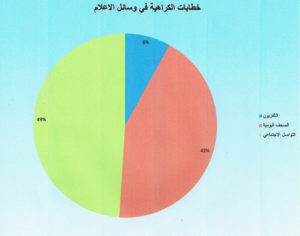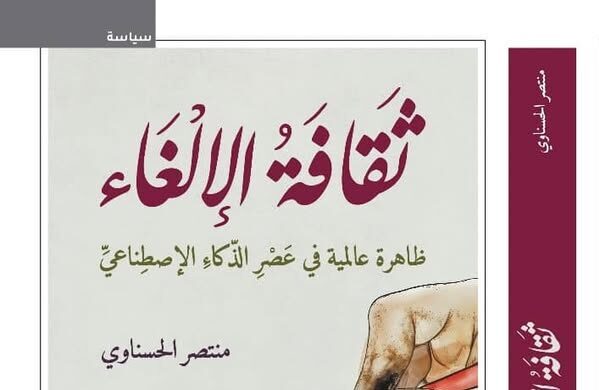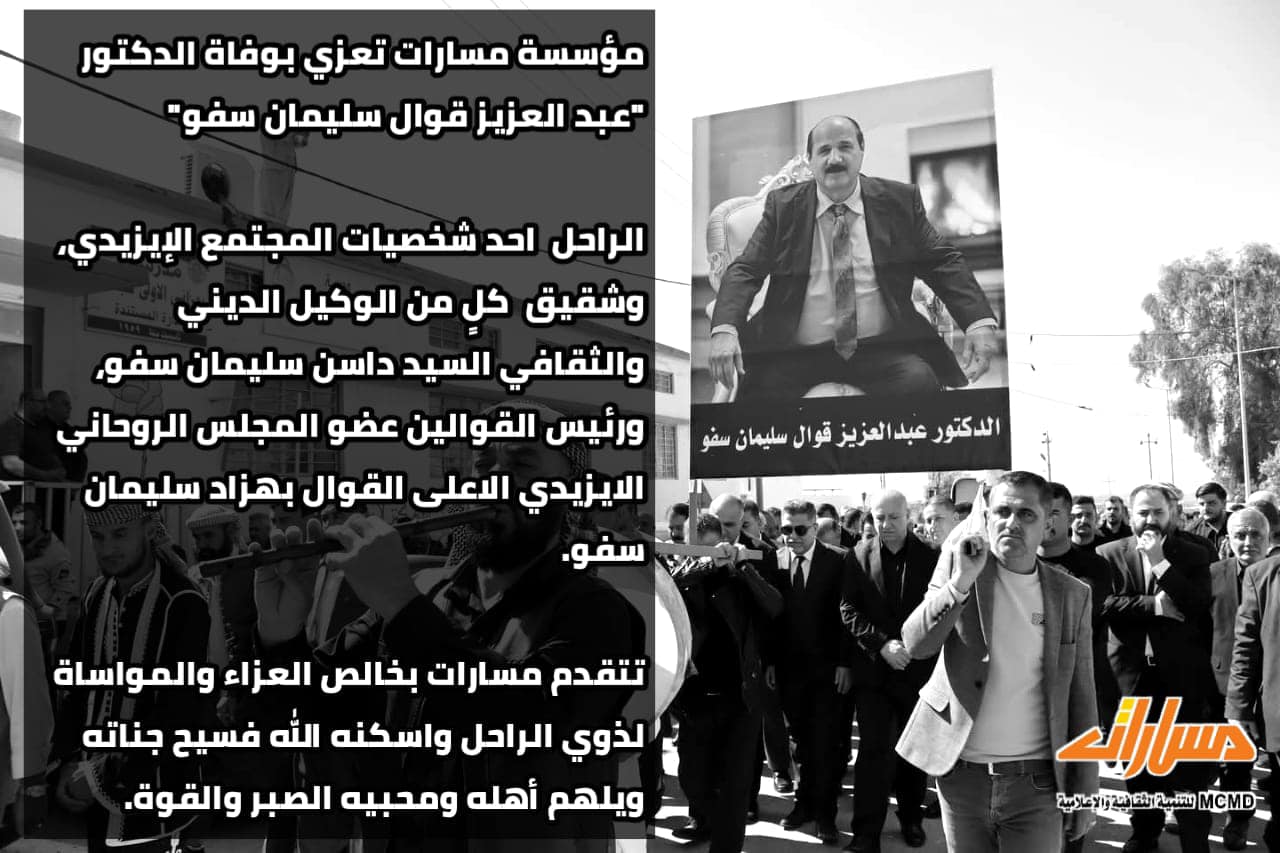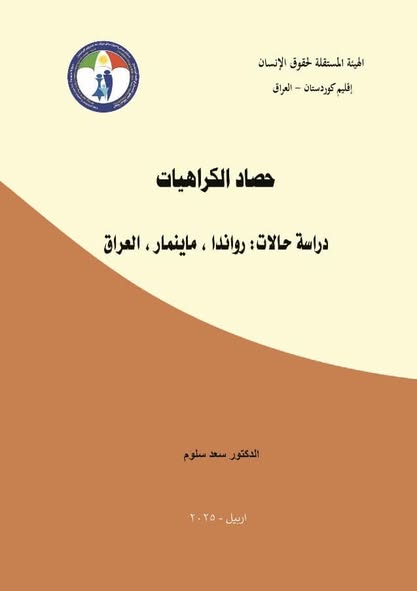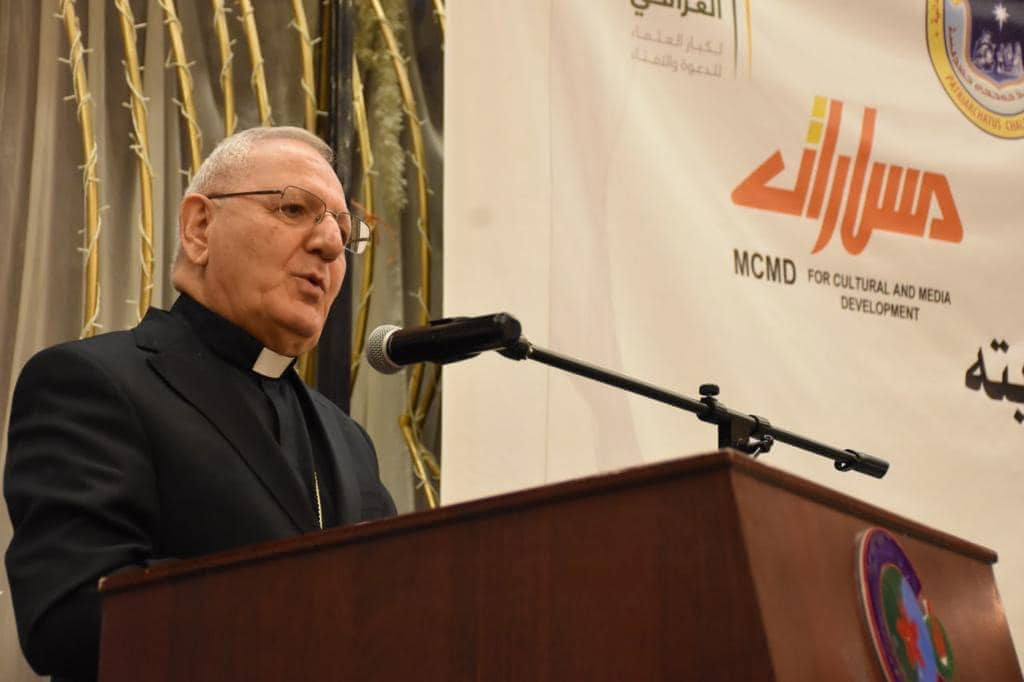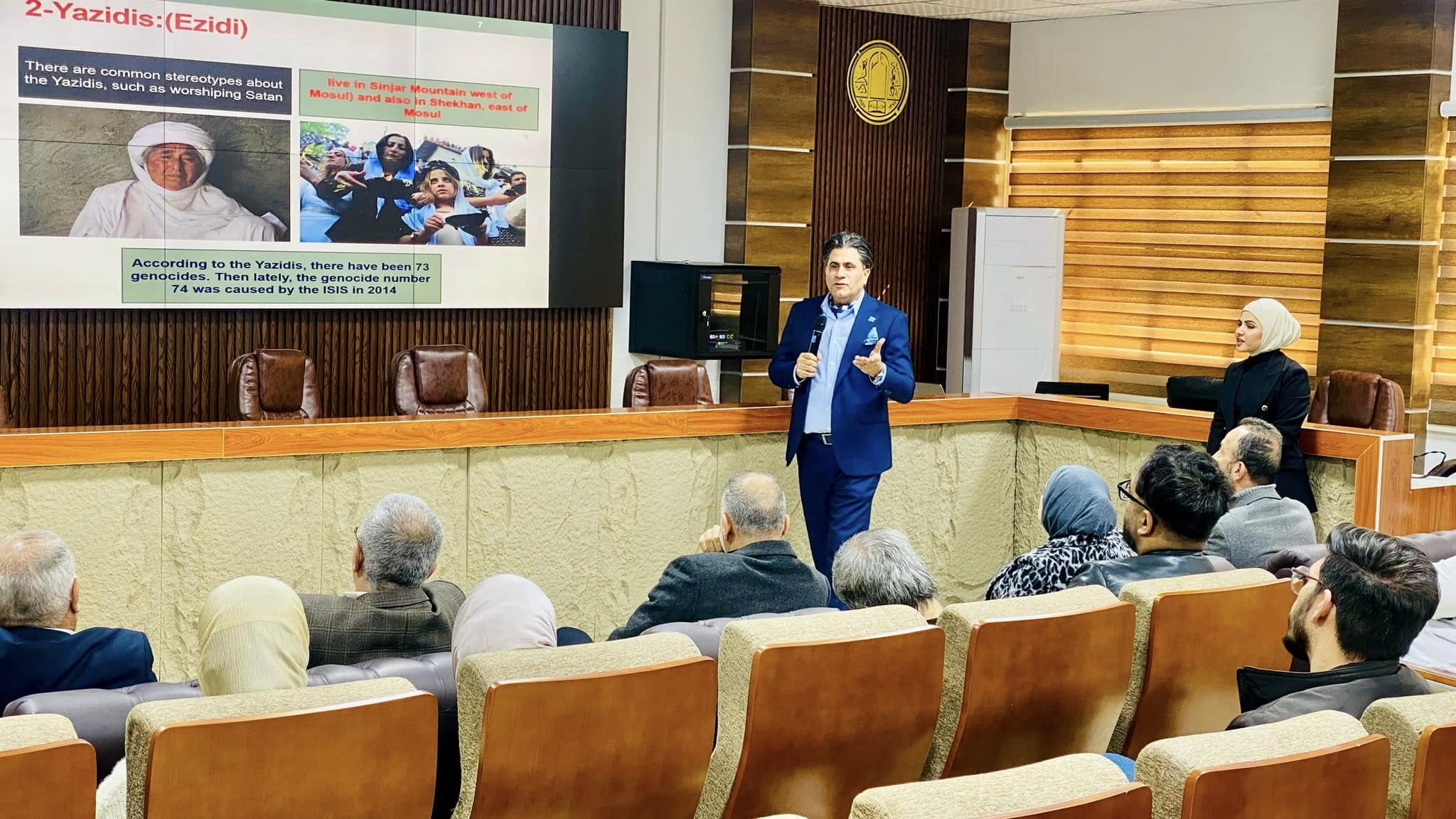بحسب استبيان اعدته مؤسسة مسارات للتنمية الثقافية والاعلامية تبين ان معدل تعرض المواطن العراقي لرسائل الكراهية وصل الى 37 رسالة في اليوم موزعة بمعدل 3 رسائل كراهية من التلفزيون،و16
According to a survey conducted by MASARAT Institution for Cultural and Media Development, the Iraqi citizen is revealed to be exposed to hate messages that amount to 37 messages per day, distributed to 3 hate messages via TV, 16 messages via printed journalism, and another 18 ones from the social media networks. In other words, an average of 8% from TV channels, 43% from press and 49% from social media.
The survey indicated that Iraqi citizens spend more than 5 hours a day following social media, one hours watching TV and 80 seconds reading newspapers per day.
Such percentages indicate the dangers and levels of exposure of Iraqis to hatred discourse through the three aforesaid types of media given the fact that the family, the school or the concerned authorities cannot control the incoming messages of social media network, and that there is no moral or legal imperative which may restrict the danger of such messages. This makes the citizen susceptible to cultural/thought invasion without having any kind of protection or any preventive tool to safeguard people from hatred campaigns targeting the people.
Alaa Hameed, anthropologist researcher and member of Board of Director in MASARAT, in his analysis of these results, pointed out that “there is a clear growth in the employment of social media tools in spreading the culture of hatred, since these tools are available for everybody, and they require no highly complicated skills to use them. In addition to the fact that the indicator of concentration of hatred in the social media rather than the TV due to the difference between both types, as TVs require some technical requirements as well as high financial costs, unlike social media means.”
The survey results depend on observing the favorite channels and newspapers of the experimental group, i.e., the research sample only, as well as observing and following what they encounter in their personal social media accounts. It’s worth mentioning that this survey is part of a larger campaign to encounter hate speech and hate discourse in Iraqi Media outlets led by MASARAT Institution. Other results will be published successively.
